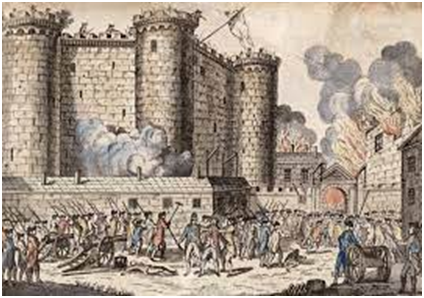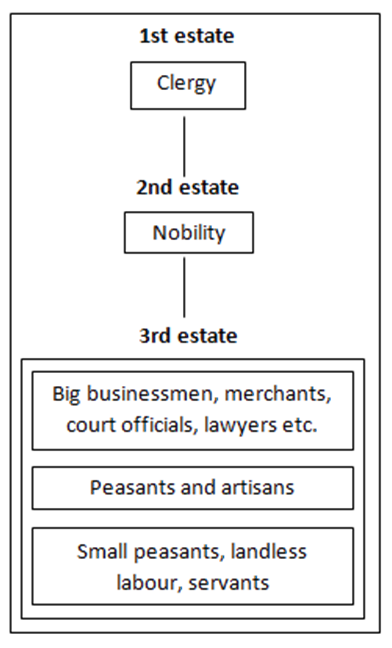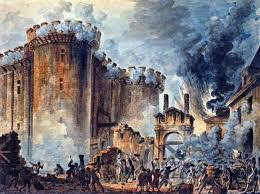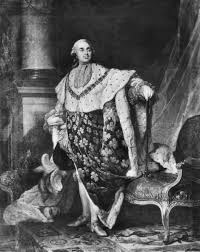French Society During the Late Eighteenth Century
- Books Name
- Learn with me Social Science Book
- Publication
- Learn with me publication
- Course
- CBSE Class 9
- Subject
- Social Science
The French Revolution
- The outbreak of the French Revolution
- Changes after Revolution
- Classes of French Societies
- Facts about Napoleon, the former emperor of France.

The French Society during the Late 18th Century-
The French Society comprised :
1st Estate: Clergy
2nd Estate: Nobility
3rd Estate: Big businessmen, merchants, court officials, peasants, artisans, landless laborers, servants, etc.Some within the Third Estate were rich and some were poor.
The burden of financing activities of the state through taxes was borne by the Third Estate alone.

The Struggle for Survival: Population of France grew and so did the demand for grains. The gap between the rich and poor widened. This led to subsistence crises.
The Growing Middle Class: This estate was educated and believed that no group in society should be privileged by birth. These ideas were put forward by philosophers such as Locke the English philosopher and Rousseau the French philosopher. The American Constitution and its guarantee of individual rights was an important example of political theories of France. These ideas were discussed intensively in salons and coffee houses and spread among people through books and newspapers
Time Line: The French Revolution
1770s-1780s: Economic decline: French Government in deep debt. In 1774, Louis XVI ascends to the throne.
1788-1789: Bad harvest, high prices, food riots.
1789, May 5: Estates-General convened, demands reforms.
1789, July 14: National Assembly formed. Bastille stormed on July 14. French Revolution starts.
1789, August 4: Night of August 4 ends the rights of the aristocracy, the surrender of feudal rights.
1789, August 26: Declaration of the Rights of Man
1790: Civil Constitution of the Clergy nationalizes the Church.
1791: Dissolution of the National Constituent Assembly.
1792: Constitution of 1791 converts absolute monarchy into a constitutional monarchy with limited powers.
1792: Austria and Prussia attack revolutionary France, Robespierre, elected the first Deputy for Paris to the National convention.
1793: Louis XVI and Marie Antoinette were executed.
1792-1794: In 1793, the Reign of Terror starts. Austria, Britain, the Netherlands, Prussia, and Spain are at war with France.
Robespierre’s Committee of Public Safety repels back foreign invaders.
Executes many ‘enemies of the people’ in France itself.
1794: Robespierre is executed. France is governed by a Directory, a committee of five men. The Reign of Terror ends.
1795: National convention dissolved.
1799: Napoleon Bonaparte becomes the leader of the French Revolution ends.
Women’s Revolution

- From the very beginning, women were active participants in the events which brought about so many changes in French society.
- Most of the women of the third estate had to work for a living.
- Their wages were lower than those of men.
- They demanded equal pay for equal work.
- In order to discuss and voice their interests, women started their own political clubs and newspapers.
- One of their main demands was that women must enjoy the same political rights as men.
- Women were disappointed that the Constitution of 1791 reduced them to passive citizens.
- They demanded the right to vote, to be elected to the Assembly and to hold political office
- Together with the creation of state schools, schooling was made compulsory for all girls. Their fathers could no longer force them into marriage against their will. Marriage was made into a contract entered into freely and registered under civil law.
- Divorce was made legal, and could be applied for by both women and men.
- Women could now train for jobs, could become artists or run small businesses. Women’s struggle for equal political rights.
- During the Reign of Terror, the new government issued laws ordering closure of women’s clubs and banning their political activities. Many prominent women were arrested and a number of them executed. Women’s movements for voting rights and equal wages continued through the next two hundred years in many countries of the world. The fight for the vote was carried out through an international suffrage movement during the late nineteenth and early twentieth centuries. The example of the political activities of French women during the revolutionary years was kept alive as an inspiring memory. It was finally in 1946 that women in France won the right to vote.
- Some laws were introduced to improve the position of women.
- Their struggle still continues in several parts of the world.
It was finally in 1946 that women in France won the right to vote
France Abolishes Monarchy and Becomes a Republic
- Books Name
- Learn with me Social Science Book
- Publication
- Learn with me publication
- Course
- CBSE Class 9
- Subject
- Social Science
The Abolition of Slavery
- The most revolutionary social reforms of the Jacobin regime was the abolition of slavery in the French colonies.
- Reluctance of Europeans to go and work in distant and unfamiliar lands meant a shortage of labour on the plantations.
- This was met by a triangular slave trade between Europe, Africa and the Americas.
- The slave trade began in the seventeenth century.
- The slaves were packed tightly into ships for the three-month long voyage across the Atlantic to the Caribbean. There they were sold to plantation owners.
- Port cities like Bordeaux and Nantes owed their economic prosperity to the flourishing slave trade.
- It was finally the Convention which in 1794 legislated to free all slaves in the French overseas possessions.
- Ten years later, Napoleon reintroduced slavery. Plantation owners understood their freedom as including the right to enslave African Negroes in pursuit of their economic interests.
- Slavery was finally abolished in French colonies in 1848.
The Revolution and Everyday Life
- The years following 1789 in France saw many changes in the lives of men, women, and children.
- The revolutionary governments took it upon themselves to pass laws that would translate the ideals of liberty and equality into everyday practice.
- One important law that came into effect was the abolition of censorship.
- Now the Declaration of the Rights of Man and Citizen proclaimed freedom of speech and expression to be a natural right.
- Newspapers, pamphlets, books and printed pictures flooded the towns of France from where they travelled rapidly into the countryside.
- Freedom of the press also meant that opposing views of events could be expressed.
- The ideas of liberty and democratic rights were the most important legacy of the French Revolution. These spread from France to the rest of Europe during the 19th century.
Napoleon

- In 1804, Napoleon crowned himself emperor of France.
- He set out to conquer neighboring European countries, dispossessing dynasties and creating kingdoms where he placed members of his family.
- He saw his role as a modernizer of Europe.
- He introduced many laws (the protection of private property and a uniform system of weights and measures provided by the decimal system).
- He was finally, defeated at Waterloo in 1815.

 Learn with me publication
Learn with me publication
